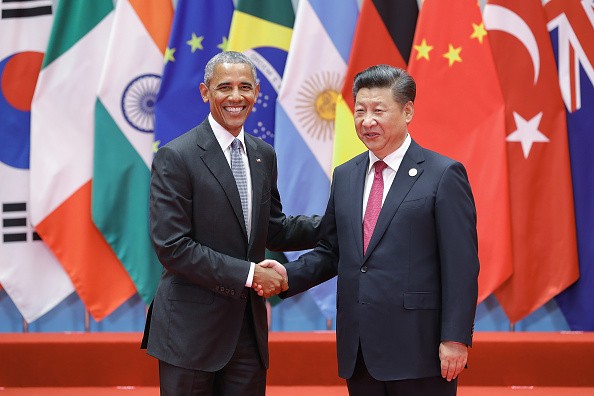China welcomes world leaders as host of its first Group of 20 Summit (G20 Summit) in Hangzhou, the country's high-tech hub and entrepreneurship center.
The ancient capital is famous for its mild climate, affluent economy and beautiful landscapes such as West Lake, which view is featured on the back of 1 yuan bills. With a population of 8.7 million, the city is located south of Shanghai and is a natural pick, according to Bloomberg.
But more importantly, for Chinese leaders, the city highlights the country's transformation and high-value growth brought about by innovative private companies such as Alibaba Group Holding Ltd.
The new economy is embodied by Alibaba founder, Jack Ma, who has accumulated a fortune of about $35 billion, making him the country's richest person. In 1999, the former teacher started Alibaba from his Hangzhou apartment with only $60,000 and in 2014, led it to the biggest-ever initial public offering. The company now has $243 billion and operates Taobao, the country's biggest online shopping site, with 36,000 employees and countless followers.
About one-third of the country's shopping websites are based in Hangzhou, where online retail sales increased 27.6 percent in the first half of the year.
Geely Automobile Holdings Ltd. China's first private automaker, and Hangzhou Hikvision Digital Technology Co., the world's largest video surveillance equipment supplier, is also based in the city. Its financial center, Yuhuang Shannan Fund Town, is also located in the city, which is similar to the hedge fund hub of Greenwich, Connecticut.
Hangzhou has been known to the world before. In 1972, Mao Zedong brought Richard Nixon, on his first presidential visit to Hangzhou, as well as in Beijing and Shanghai. During Deng Xiaoping's reform and opening up in 1978, the city was quick to adopt the changes. In the hillside village of Moganshan, young scholars gathered in 1984 to speak about the country's economic policy, a landmark event that included two young economists: People's Bank of China Governor Zhou Xiaochuan and Finance Minister Lou Jiwei, who are now part of the G20 gathering.
In the 2000s, Hangzhou, which capital of Zhejiang Province, made big economic advances under the leadership of a promising young, provincial party chief Xi Jinping.
Entrepreneurship and private enterprises in Hangzhou has posted a 10.8 percent expansion rate while the country's gross domestic product grew 6.7 percent. The city is the 10th largest in the country, with its $150 billion municipal economy.
The summit will be start this weekend and Chinese leaders have made great preparations for the success of the event. According to the Xinhua News Agency, around 651 infrastructure projects were built by local authorities for the summit, with the support of 760,000 volunteers. The government also closed around 230 mines to ensure clean air during the event. The government has also employed about 2,000 drivers with 900 vehicles for guests and VIPs, including a 7,450-square-meter warehouse to store 900 tons of food for the visitors, the news agency said.



























